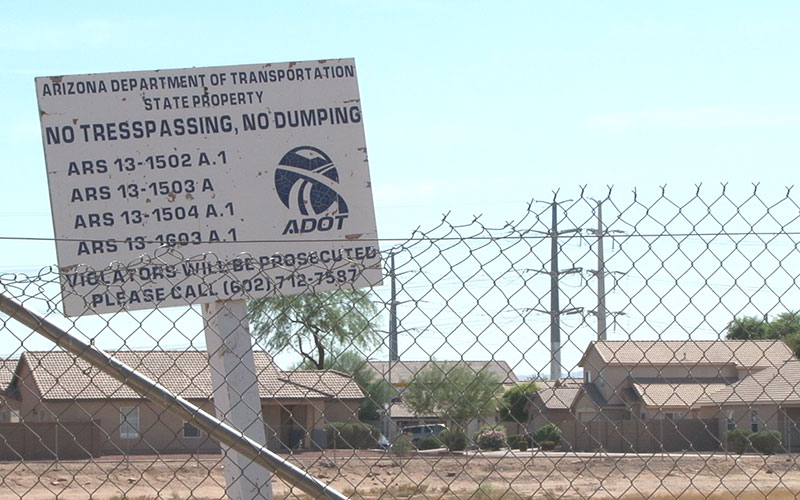Many groups have vocalized their opposition to the future South Mountain Freeway, but there are residents of Laveen who say they’re excited about it.
“We’re like a lot of people who live in Laveen, the silent majority, who want to live close to downtown, want to live in a unique community like Laveen, and saw that the freeway was coming and took that as a hope to go ahead and move here,” resident Jacob Findlay said. “So part of the grand plan is for the freeway to be here to make it much more livable and make Laveen even better.”
The route for the $2 billion extension was approved by the Federal Highway Administration in March, and demolition began in August. It will connect Laveen to Chandler, running east and west along Pecos Road and north and south between 55th and 63rd Avenues.
Findlay said he moved to Laveen 11 years ago in anticipation of the freeway being built. He said it will help tie the rural village to downtown Phoenix and the rest of the Valley, while also encouraging more people to live in Laveen.
Laveen is about 15 miles from downtown Phoenix, but during rush hour, the commute can take up to an hour.
“To get to the I-10 I have to go up 51st Avenue, 35th Avenue. There’s a bunch of lights you have to pass, sometimes most of them are red. You avoid all of that if there’s a freeway with a more direct path to the I-10,” Laveen resident Miguel Ruiz said.
Reducing traffic congestion is just one of the reasons the Arizona Department of Transportation is extending the freeway.
“If we do not continue ahead with this project, we’re going to see more traffic congestion not just in that area but on other freeways, including I-10 and the Broadway curve. That additional traffic congestion will bring more pollution to the area,” ADOT Spokesperson Dustin Krugel said. “It will also complete the Loop 202 and Loop 101 highway systems that were formulated decades and decades ago.”
ADOT is facing a combined lawsuit from Protecting Arizona’s Resources and Children and the Gila River Indian Community that claims the proposed extension will damage sacred land and harms the environment. The trial is scheduled to be completed by March, and construction of the freeway is also set to begin next year. ADOT estimates the freeway won’t be open to traffic until 2019.
